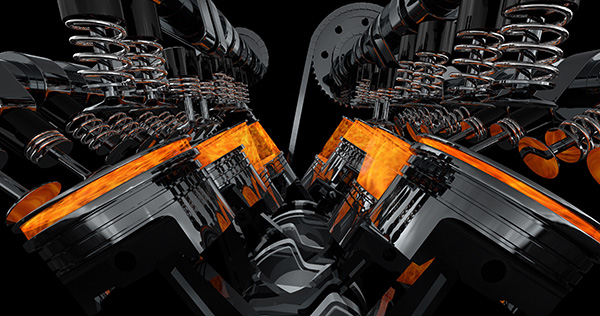
If you’ve just driven off the lot with a shiny new car, you might be surprised to notice that the engine is consuming oil sooner than you expected. You might ask yourself, “Is this normal?” Modern engines are built differently than they were a decade or two ago, and some oil consumption is more common in new cars than you might think. But how much is too much, and when should you be concerned?
Why Do New Engines Consume Oil?
Oil consumption in a new engine isn’t necessarily a red flag. In fact, there are a few reasons why it might happen:
Tighter Tolerances
Modern engines are designed with tighter tolerances to improve efficiency and performance. These precise fits can lead to slight oil consumption during the break-in period as parts settle into place.
Low Friction Designs
To meet stringent fuel economy standards, many new engines are built with low-friction components and thinner piston rings. While this improves efficiency, it can also lead to small amounts of oil slipping past the rings and burning off.
Turbocharged Engines
Many new vehicles feature turbocharged engines for added power and fuel efficiency. Turbos operate at high speeds and temperatures, which can increase oil consumption.
What’s Considered Normal Oil Consumption?
The definition of "normal" oil consumption varies by manufacturer and engine type. Some carmakers state that burning up to one quart of oil the first 5,000 miles is within the acceptable range for certain new vehicles. While that might sound like a lot, it’s often accounted for in the engine’s design.
However, if you’re adding oil more frequently than this, or if you notice blue smoke from the exhaust (a sign of burning oil), it’s worth investigating further.
Break-In Period and Oil Consumption
During the first 1,000-3,000 miles, your engine is going through what’s known as a break-in period. This is when the engine’s components are "seating" and establishing their final fit. A small amount of oil consumption during this time is typical and usually levels off once the break-in period is complete.
To help ensure your engine breaks in properly:
Avoid aggressive driving or high RPMs during the initial miles.
Follow the manufacturer’s recommended maintenance schedule for oil changes.
How to Monitor Your Oil Levels
Keeping an eye on your oil levels is essential, especially in a new car. Here’s how to stay on top of it:
- Check Regularly: Use the dipstick to check your oil level at least once a month or before long trips.
- Follow the Manual: Refer to your owner’s manual for guidance on the correct oil type and how often to check it.
- Pay Attention to Warning Lights: If the oil pressure or low oil warning light comes on, address it immediately to avoid engine damage.
When to Be Concerned About Oil Consumption
While some oil consumption is normal, excessive use may indicate a problem. Signs to watch for include:
- Frequent Top-Ups: If you’re adding oil more often than the manufacturer recommends, it could point to a leak or excessive burning.
- Blue Smoke from the Exhaust: This is a clear sign that oil is burning in the engine.
- Unusual Noises or Performance Issues: If the engine feels sluggish or you hear knocking sounds, excessive oil consumption could be affecting performance.
In these cases, it’s best to have your car inspected by a professional to rule out issues like damaged piston rings, valve seals, or turbocharger problems.
How to Minimize Oil Consumption in New Engines
While some oil consumption is inevitable, there are steps you can take to reduce it:
Stick to the manufacturer’s recommended oil change intervals and use the specified oil grade.
Avoid harsh driving during the break-in period to allow the engine components to settle properly.
Address any warning lights or unusual symptoms promptly to prevent further damage.
Concerned about your car’s oil consumption? Visit Kamphaus Auto Care in Hanover Park, IL, for expert diagnostics and advice. Let us keep your engine in top shape!